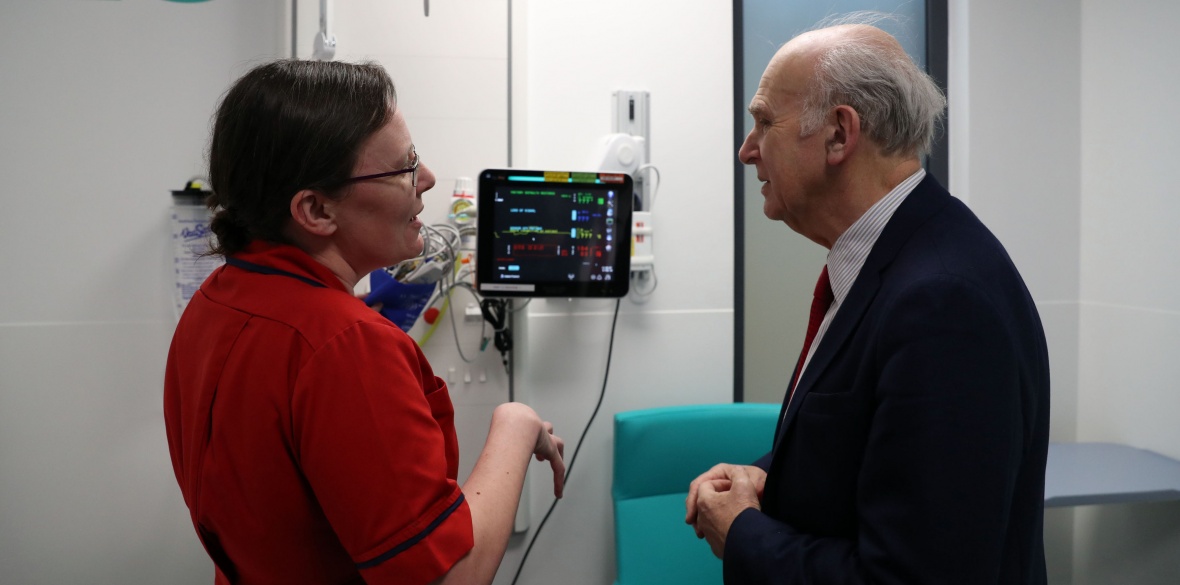This is the last article you can read this month
You can read more article this month
You can read more articles this month
Sorry your limit is up for this month
Reset on:
Please help support the Morning Star by subscribing here
FRUSTRATION over uncertainties relating to funding of the NHS should not lead health staff or campaigners to fall for gimmicks like a hypothecated health tax.
All the more so when this is trotted out by the Liberal Democrats when their own MPs, including current leader Vince Cable, propped up David Cameron’s Tories as they slashed real-terms NHS spending.
Former Tory minister Nick Boles pushed the boat out last month by describing the NHS provocatively as the “cuckoo in the Treasury nest, hungrily demanding ever more money and pushing other public services ever closer to the edge.”
His hypothecation solution would rebrand National Insurance as National Health Insurance, with income held and distributed from a healthcare fund and spent according to five-year plans.
His otherwise like-minded Liberal Democrat panel recognise that this would weigh unfairly on low and middle-income working people earning between £157 and £866 a week who pay 12 per cent of their income in National Insurance.
Those on over £866 are charged a 2 per cent marginal rate while over-65s who choose to continue working pay no National Insurance.
The injustices suggest that, rather than a National Insurance extension by another name, it should be phased out.
Shadow chancellor John McDonnell was once prepared to consider a hypothecated NHS tax, suggesting it might “help restore the trust and confidence in taxation and government spending.”
Party leader Jeremy Corbyn made clear, however, that, “if you go down the road of hypothecated taxation, then you’re going to do hypothecated taxation for every other service.”
How long would it be before brass hats, backed up by arms manufacturers and their mouthpieces in media and Parliament, demanded hypothecation of taxes “to keep the country safe from its enemies?”
The predictable result would be hypothecated taxes for popular spending areas and an ongoing squeeze on Cinderella ministries — possibly welfare benefits or overseas aid.
Another problem for allocating specific taxes to a single area of government spending is the likely demand for exemption.
At present, the small minority able to jump NHS queues by paying for private healthcare — or, more usually, having it provided as an employment perk — can’t opt out of contributing because the NHS budget comes out of general taxation.
Who would bet against a future Tory government, with or without Liberal Democrat collaboration, granting exemption from such a hypothecated deduction?
Most opinion polls deliver results showing respondents prepared to pay higher taxes to maintain healthcare funding, with 90 per cent insistent that the NHS should not have to reduce either level of care or range of services to balance the books.
This illustrates, notwithstanding sneers from such oafs as Donald Trump, the ongoing commitment of people in Britain to the healthcare model introduced 70 years ago by Aneurin Bevan.
He advocated general taxation as the basis of NHS funding, insisting that using a contributory system such as National Insurance to fund it would be a “peculiarly unsuitable” approach, leading to complications and lack of fairness.
If hypothecation means more than an empty gesture, it involves government collecting a specific tax, transferring it to the NHS and basing expenditure on the income generated, which is an arse-about-face way of operating.
For the NHS to fulfil its revolutionary humanising role, it needs necessary finance guaranteed and to have that cost met out of general taxation, requiring a national debate on tax levels and, especially, about which layers of society are best able to pay more.











